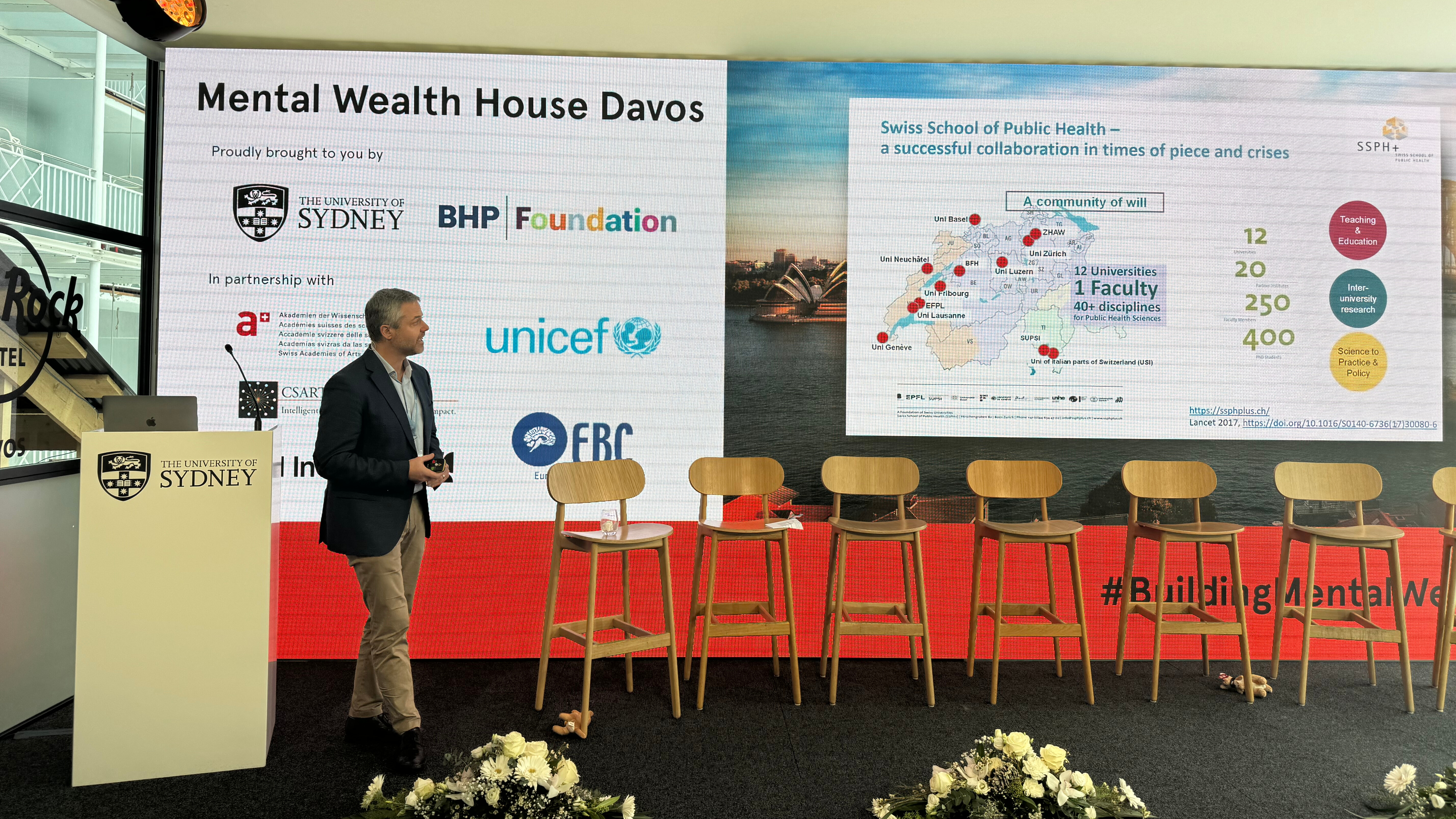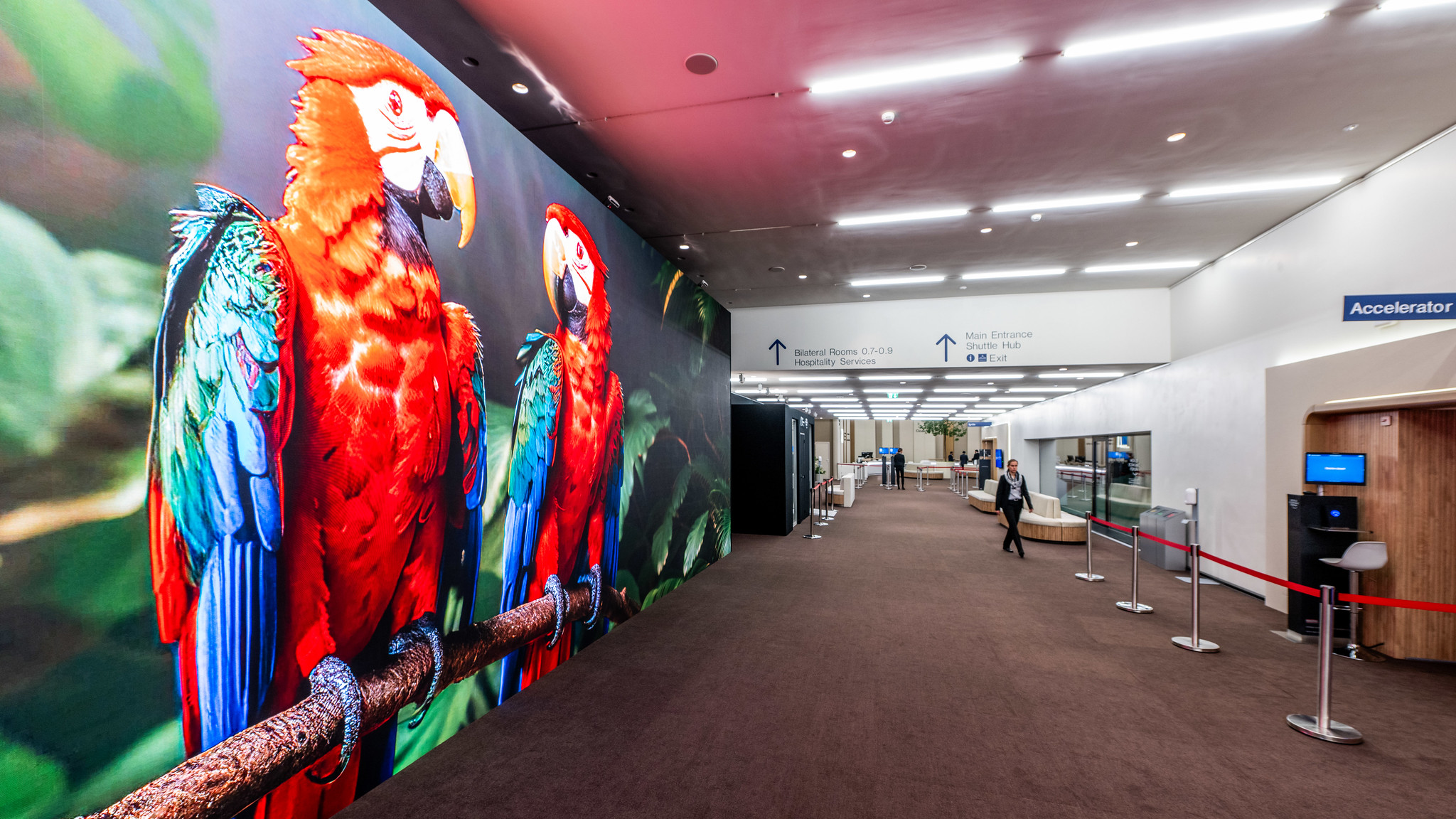From Davos to the World: UZH's Contributions and Insights to the WEF 2024
The Annual Meeting of the World Economic Forum (WEF) 2024, held from 15 to 19 January 2024 under the theme “Rebuilding Trust”, marked a significant milestone for global collaboration and innovation. Known for conversations about global issues, the 54th Annual Meeting saw active participation from UZH, contributing to this year's summit.
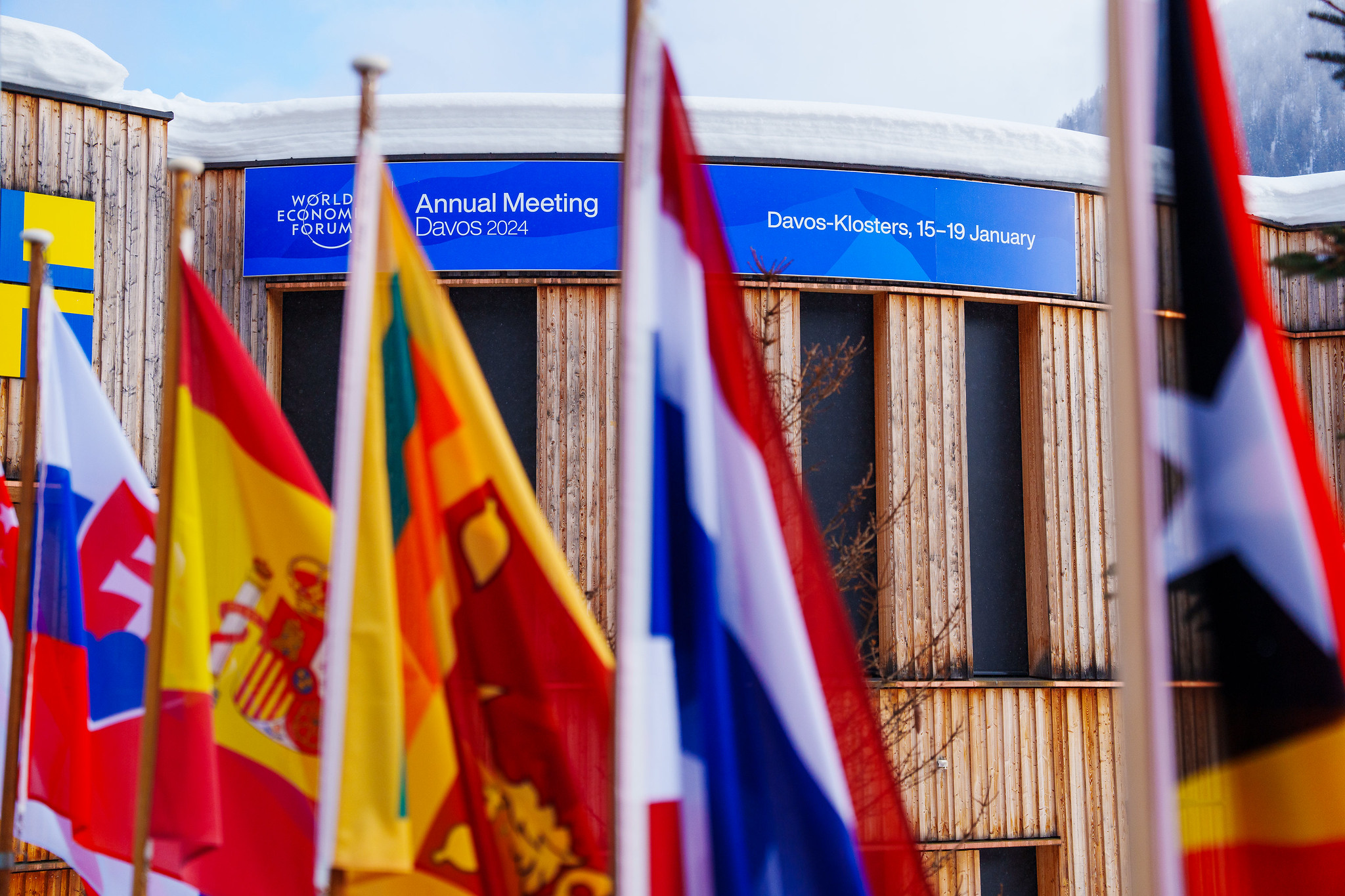
This year’s WEF Annual Meeting, an influential platform for shaping sustainable policies and addressing global challenges brought together over 100 governments, major international organizations, 1,000 forum partners, civil society leaders, experts, youth representatives, social entrepreneurs, and international media. Together, they engaged in meaningful conversations aiming to solve pressing global challenges.
One notable contribution from UZH was the active participation of UZH President Michael Schaepman in this year’s summit, where he also took on the role of a speaker during an event organized by Swissnex in Brazil, in collaboration with ETH Zurich and UZH, titled “Amazônia and beyond: The Role of Nature in Climate Change Mitigation”.
Towards COP-30: Amazon conservation
This event shed light on the critical importance of the Amazon rainforest as the “lungs of the Earth”. With over 24 million people in Brazil relying on its resources, the Amazon is not just a global asset but also a lifeline for local communities. The event included inputs from experts on various aspects such as „The Amazon From Space“,which explored the role of technology and remote sensing in biodiversity monitoring, and “Protection through People”, discussing the involvement of marginalized and indigenous populations in preserving biodiversity. By connecting opinion-makers, researchers, and governmental delegations, this gathering paved the way for collaborative action towards COP-30 in Belém.
Prioritizing mental well-being
In addition to UZH's contributions to environmental discussions, Professor Milo Puhan, Director of the UZH Epidemiology, Biostatistics and Prevention Institute, and who is also President of the Swiss School of Public Health, participated in an event titled “Building the Mental Wealth of Nations: A 21st Century Approach”, which was held alongside the WEF. This forum, organized by the University of Sydney in cooperation with the BHP Foundation, highlighted the critical importance of mental well-being in times of exacerbating global crises.
Notably, Milo Puhan showcased a significant mental health surveillance program in Ukraine, underlining the importance of collective efforts to ensure the well-being of communities, especially those facing challenges like refugees. The event further brought together luminaries from various fields, including industry, science, health, and technology, to discuss the wider concept of “Mental Wealth”. It underscored that prosperity is not solely based on economic productivity but is contingent upon social cohesion and the mental health and well-being of communities worldwide.
Inclusive and forward-thinking sessions
Furthermore, throughout the year, stakeholders from diverse domains, encompassing both science and business, have actively engaged by contributing valuable inputs and preparatory reports to the WEF Annual Meeting. For instance, Adrian Künzler, Professor of Trade and Business Law at UZH, has been instrumental in shaping discussions in the WEF’s “Global Future Council “Future of the Metaverse”, while Ning Wang, ethicist and political scientist at UZH, has contributed actively to the Council “Future of Technology Policy”.
Anne Nuria Boekhout
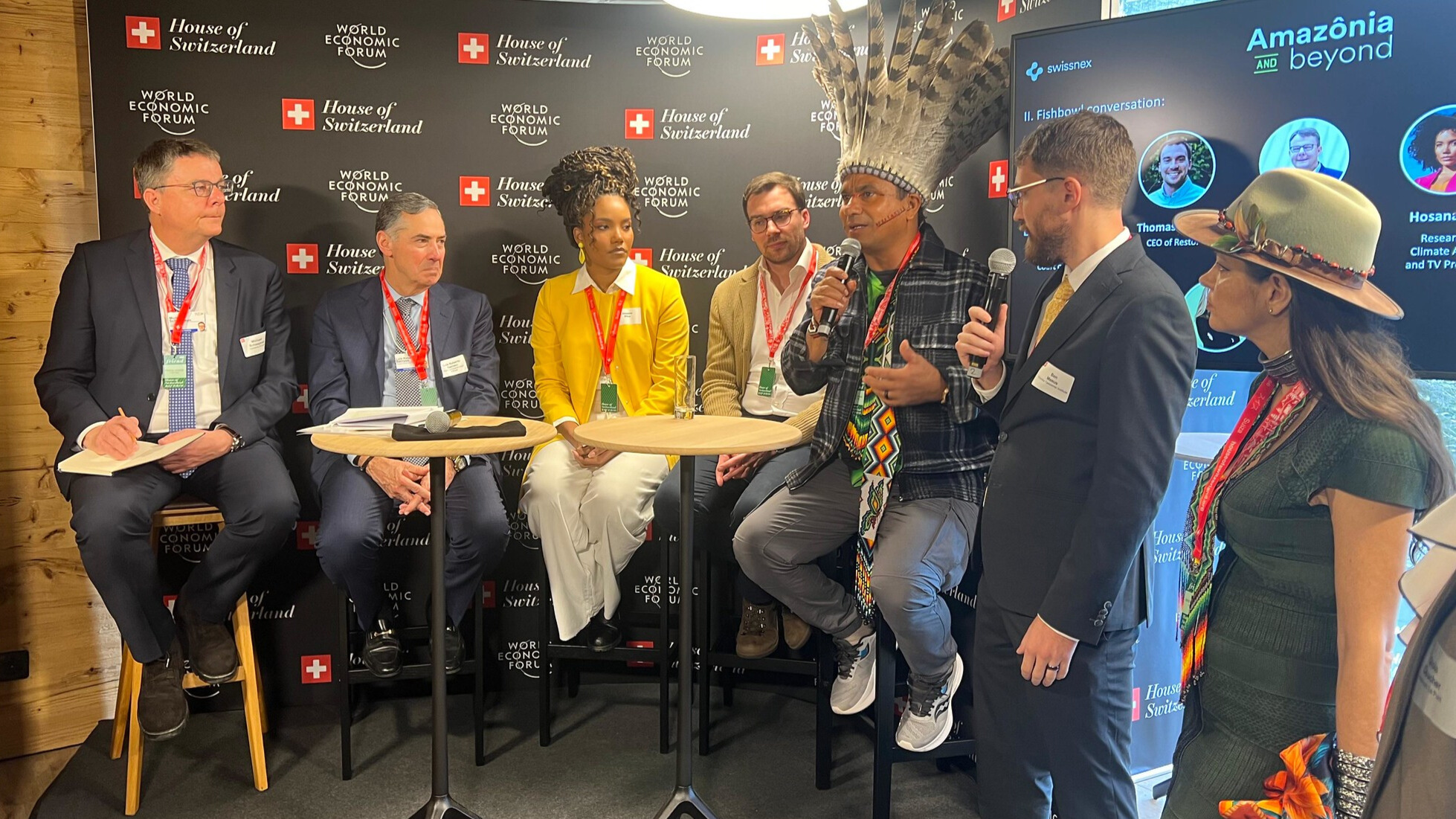
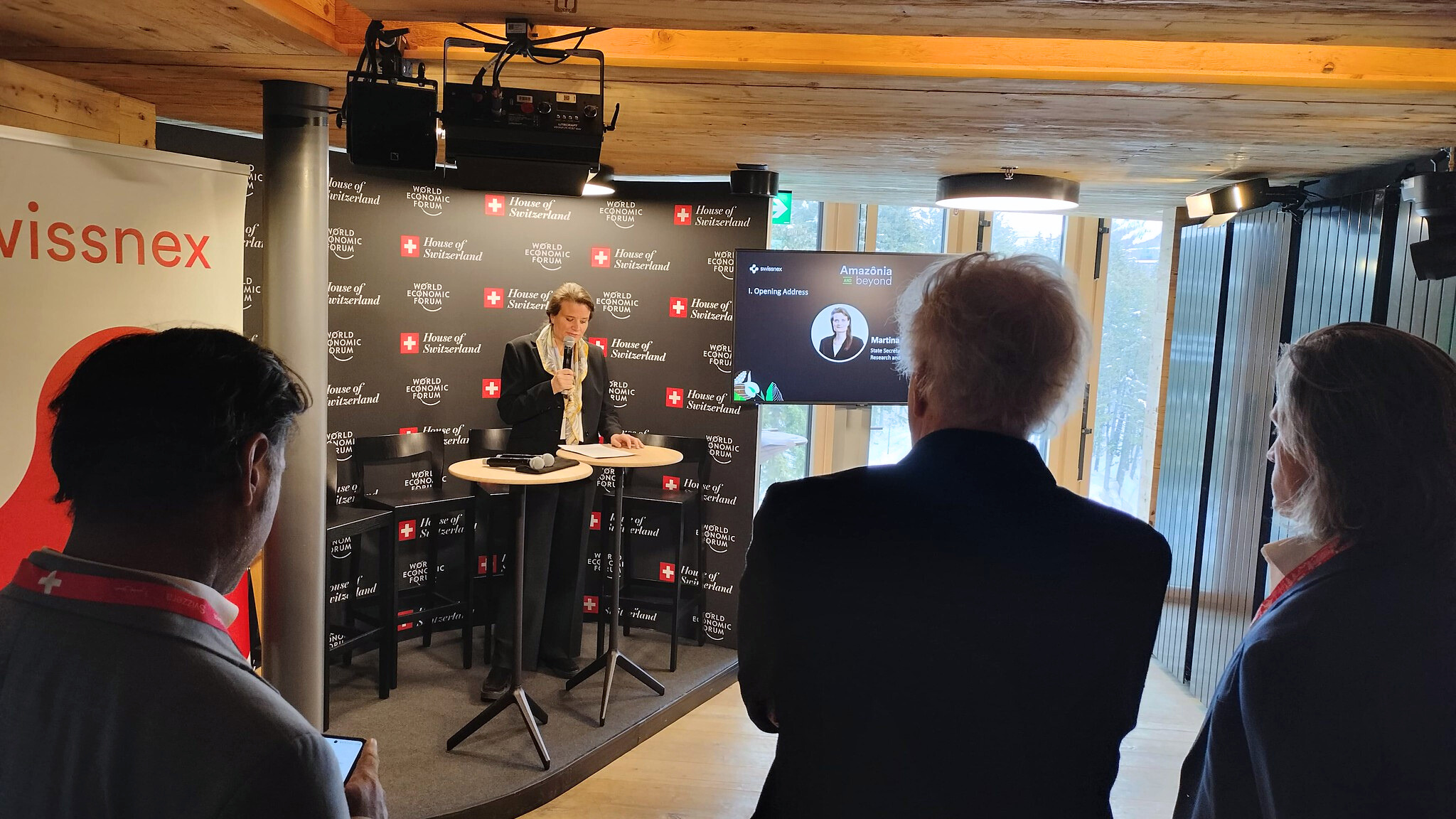
.jpg)
